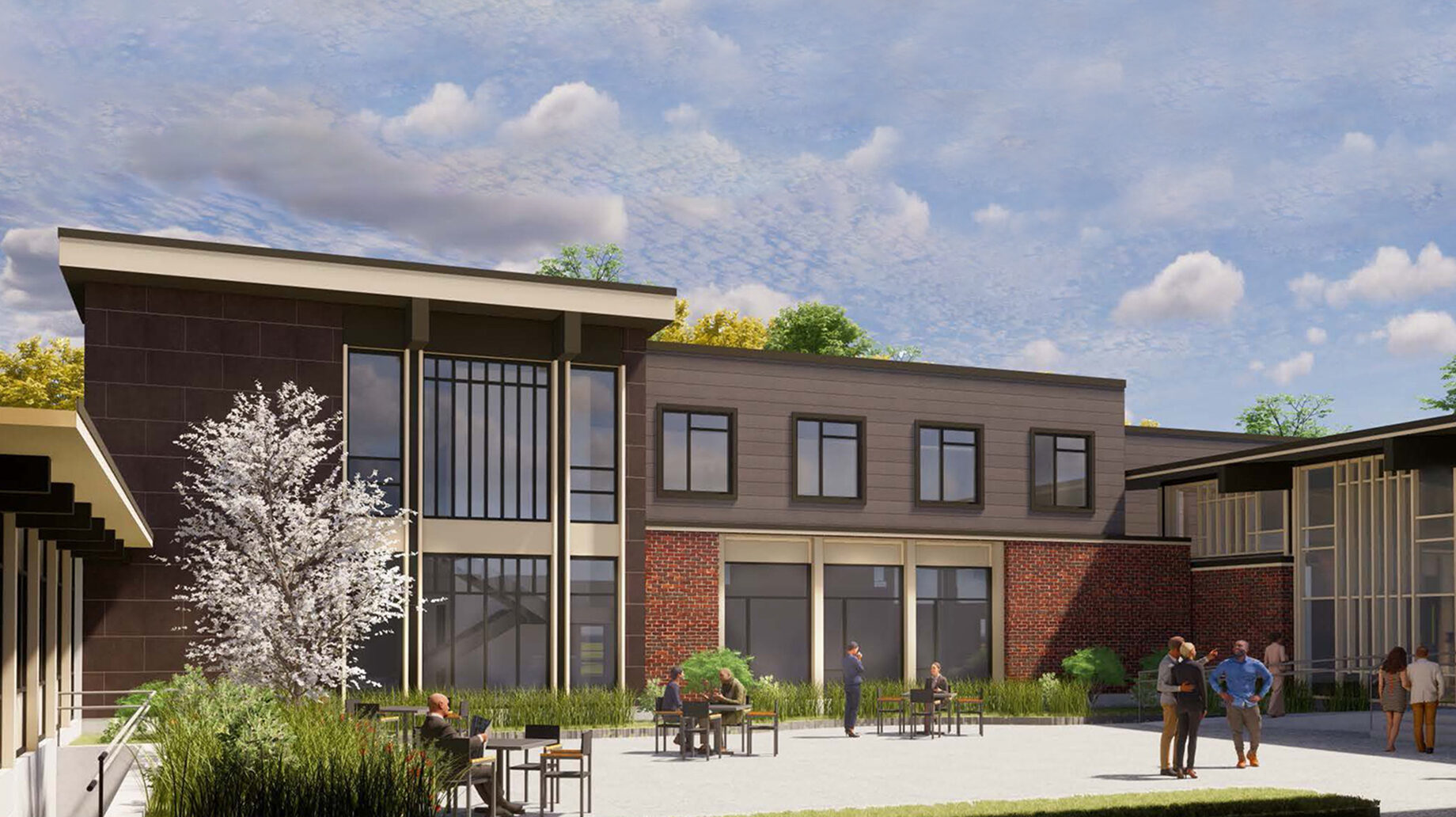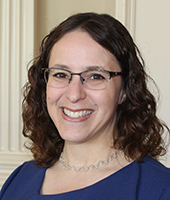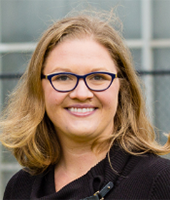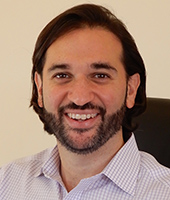
Eva Heinstein
This January, we ran a second virtual seminar for Cohort III of the Executive Leadership Program. The theme of the seminar was the North American Jewish organizational ecosystem, which we explored through faculty sessions, peer deliberation and a live inquiry project. Over four days, fellows explored how Jewish organizations can become more adaptive to changing communities and ecosystems, and above all, collaborate to achieve common purposes.
Each seminar includes an experiential project that enables fellows to apply and test out their learning. We collaborated with Rabbi Sharon Cohen Anisfeld, President of Hebrew College, to develop an inquiry project on the new shared campus for Jewish life in Newton, MA. The campus will be built on the grounds of Temple Reyim and serve as an interdisciplinary hub for the college, synagogue and seven other partner organizations: Mayyim Hayyim, Kesher Newton, Zamir Chorale of Boston, Jewish Arts Collaborative, Jewish Women’s Archive, Keshet, and the Massachusetts Board of Rabbis.
The project was designed to surface insights about how professional and lay leaders of campus partner organizations view opportunities and challenges associated with the alliance and what structures they might invent to maximize collaboration. We also engaged two benchmark organizations – Sketchpad in Chicago and The Hive in San Diego – for fellows to learn from examples of shared campuses in the Jewish nonprofit ecosystem that have been operating for several years.
Over a day and a half, fellows interviewed twenty five stakeholders from the Newton, Chicago and San Diego campuses, surfaced themes and shared reports with Hebrew College leadership. They spent time in small groups to ground the Hebrew College case in their own professional practice and synthesize takeaways for the future.
The project also created an avenue for fellows to apply concepts from faculty-led sessions. Deborah Ancona’s teaching on X-teams and David Stolow’s session on “coopetition” provided frameworks through which to view the new alliance’s aspiration to become a hub for innovation through collaboration, knowledge exchange and resource sharing. Fellows were also able to test and apply concepts from Ted Sasson and Sarah Benor’s sessions on the changing organizational ecosystem, and Dan Judson’s teaching on the history of Jewish federations in North America.
Fellows drew many lessons from the case as they too seek to foster greater collaboration and “right size” infrastructure in their own communities. They saw the new campus as a major opportunity to encourage stakeholders from the partner organizations to become more externally oriented and see their work as part of a bigger system that supports Jewish life. Fellows noted that the presence of strong, trusting professional relationships is a critical condition for alliances to form and thrive. They also reflected that while collaboration is broadly viewed positively in the nonprofit arena, collective efforts can stumble due to lack of alignment about the purposes of and structures for long-term collaboration.
 Naomi Knopf
Naomi Knopf
Cohort III Fellow
The Hebrew College Campus Collaborative has the potential to be the ultimate example of organizations seeking to adapt to the changing Jewish communal ecosystem. The idea of multiple Jewish organizations joining together to create a hub for Jewish life in one building sounds exciting and full of possibilities, particularly as organizations are searching for new ways to engage with a changing Jewish citizenry. As I learned more about the collaborative, I was struck by the importance of being clear and upfront about the expectations of each of the partners. The collaboration might simply be focused on creating a physical building that fits everyone’s needs so partners can continue to focus on their individual missions with the benefit of shared space, reduced overhead costs and increased “brand awareness.” On the other hand, it might be a collaboration where the partners come together under the umbrella of a shared mission. Either is a valid working model, but the inquiry project sharpened my sense that it is essential that all the organizations involved are in agreement and understand their roles in relation to each other. I look forward to seeing how the collaborative develops to fit the diverse needs of the partner organizations and how it can serve as a model for other communities looking to adapt to a changing Jewish landscape.
 Ashley Lasher
Ashley Lasher
Cohort III Fellow
It was an honor to be invited in to discuss the budding collaborative campus in Newton, MA. Holding intimate interviews with representatives from partner organizations gave me the opportunity to hear more honest, raw feedback than could have been gleaned from surveys or formal presentations. Through my conversations and reports from peers’ interviews, I heard important themes emerge: progress is generated through solid relationships; people are loyal to their personal passions and micro-communities; and efficiency is a highly valued objective. I also heard fears — What if our priorities don’t align? What if I/we aren’t included meaningfully? What if my needs aren’t met? In quiet moments between interviews and reports, I found myself reflecting on the ultimate purpose of the shared campus – meeting the Jewish community’s spiritual and communal needs. Connecting learning from our cohort’s prior sessions to the project, I began to recognize that as our Jewish ecosystem changes over time, we will have to balance responsibility and accountability to the evolving communities we serve with the organizational visions we inherit. It affirmed the value of seeking wide input and lifting the curtain to show our processes, even as we stand on the shoulders of leaders who came before us and taught us to act on our visions for building effective, efficient organizations.
 Martín Yafé
Martín Yafé
Cohort III Fellow
Learning about the development of this new shared campus was a unique opportunity to witness firsthand how brave leadership, combined with a clear vision, can respond to the evolving challenges of Jewish institutions. The inquiry project demonstrated how theoretical concepts learned during the seminar, such as coopetition or X-teams, can be put into practice—not just as a means of creating financial efficiencies, but also as a way of generating real excitement within the wider Jewish community. At a time of increased polarization in our world and communities, the jury is still out as to whether this initiative represents the direction our changing Jewish ecosystem is heading. Whatever the case, it is a breath of fresh air to see a large group of diverse Jewish organizations come together from both a strategic place of complementary needs and a sense of shared purpose to bring this ambitious project to fruition.
